Studying isn’t always stimulating — especially after a long day in class or at work, when your brain feels ready to shut down.
If simply staying awake while studying seems harder than quantum physics, try one of the following nine strategies to help you be alert and focused.
Movement is a well-documented energy booster. In addition to helping you stay awake, it may also help relieve exam-time stress and improve your ability to actually remember what you study.
A 2018 study of students of all ages — ranging from elementary school to college — found that 10 minutes of walking outdoors significantly improved students’ performance with memory, feature detection, and mathematical problem-solving tasks.
Aim to take a short break every 30 to 50 minutes to walk, dance, or do a few jumping jacks.
Our bodies are attuned to respond to environmental signals such as light and darkness. While the relationship between light and sleep is indirect — it’s possible to fall asleep in a well-lit room or to stay awake in darkness — light is a cue that can help promote wakefulness.
According to a 2017 study of zebrafish, this tendency may come down to a protein that’s activated when we’re exposed to light.
When it comes to studying, try to mimic a daytime environment with plenty of light. If it’s dark outside, a single lamp or overhead light might not be enough to keep you alert.
It might be tempting to get comfortable while studying, but it won’t help you stay awake.
Lying down is associated with increased activity in the parasympathetic nervous system, known for its role in functions such as “rest and digest.”
In contrast, sitting upright is associated with sympathetic nervous system activity. The sympathetic nervous system controls functions such as alertness.
A 2014 study analyzed whether sitting upright or lying down affected performance on a test of working memory.
The authors reported that when participants were lying down for the test, their self-reported sleep quality negatively affected their performance. Sleep quality didn’t affect performance when participants were sitting upright.
How does this relate to studying? If you’re feeling tired, sitting up may help you stay focused and alert.
You may also want to try standing up instead of sitting while you’re studying. Standing and moving around from time to time may help boost your blood circulation. This, in turn, may prevent you from getting sleepy.
If you live in a dorm room or shared apartment, the most convenient place to study might also happen to be the place where you usually sleep.
But it’s best to avoid studying in any place that you associate with sleep, which could leave you feeling drowsy.
When possible, study somewhere else, such as a library, coffee shop, or a dedicated, well-lit area of your home away from your bedroom.
By keeping studying and sleep areas separate, you’ll also be making it easier to turn off your brain when it’s time to go to bed.
Fatigue or sleepiness is sometimes a sign of dehydration. But dehydration won’t just drain your energy — it may also disrupt cognitive functions, making studying difficult.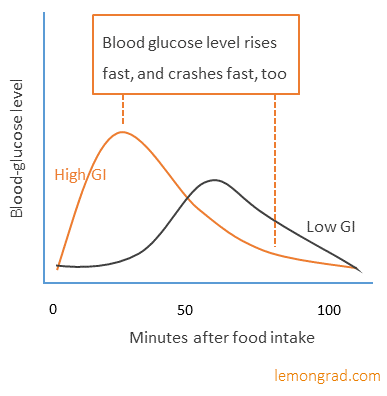
A 2010 review examined dehydration, including its effects on brain function. The authors reported that mild to moderate levels of dehydration might impair short-term memory, concentration, mathematical ability, alertness, and perception.
To ensure that you don’t doze off while studying, stay hydrated throughout the day. This is especially important if you’re physically active or live in a warm climate.
While how much you should drink varies from person to person, aim for around half a gallon per day.
What and how much you eat affects your energy levels.
While it may be tempting to treat yourself while studying, it won’t help you stay awake. Sugary snacks and junk food can make your blood sugar spike and then crash, leaving you feeling sluggish.
On the other hand, if you forget to eat or eat too much, you might find yourself dozing off.
Instead, aim for a diet of small but frequent meals. Make sure each meal contains protein, a complex carbohydrate, and a source of healthy fat. Some examples include:
Some examples include:
Reading and rereading class notes or a textbook might not be enough to keep you awake, let alone absorb information.
Keep yourself awake — and get the most out of your study sessions — by using active study techniques. To do this, try one or more of the following:
Avoid nodding off by talking through the material with a classmate, friend, or study group.
Not only is social studying more motivating and stimulating, it can also offer new perspectives and interpretations of class materials. Ask someone to explain a confusing concept to you, or solidify your own understanding by teaching the material to a peer.
If you prefer to study individually, you might find that simply studying in the presence of other people makes it easier to avoid falling asleep.
Sleep plays an important role in mood, attention, motivation, and memory — all of which affect learning. It’s no surprise then that poor sleep is associated with poor academic performance.
In fact, making sleep a priority — both in the short- and the long-term — might be the most effective way to stay alert when you’re studying.
In a 2019 study, students were presented with detailed factual information over 5 hours. Midway through the 5-hour period, they either took a 1-hour nap, watched a film, or crammed the information. They were tested on the material 30 minutes after the end of the learning period and 1 week after the end of the learning period.
The researchers found that after 30 minutes, students who had either crammed or napped were able to recall the information better than students who had watched a film. However, after 1 week, only the students who had napped maintained better recall of the information.
Make time for naps, and stick to a regular sleep schedule to help make studying easier.
Staying alert and focused can be challenging when you need to study, especially at the end of a long day. But there are ways to boost your wakefulness and avoid nodding off in the middle of a study session.
The key is to adopt healthy habits, like staying hydrated, eating regular balanced meals, getting exercise, and prioritizing your sleep whenever possible.
Other strategies that may help include studying with friends in a well-lit area, avoiding your bedroom, and using active learning techniques.
Everyone wants that small edge, which can put her/ him ahead of others. One such area is to squeeze in more effective hours into your study schedule.
One such area is to squeeze in more effective hours into your study schedule.
What if you can stretch your effective daily study hours from eight to ten? It’s hard, no doubt, but achievable. In this post, I’ll cover seven steps which will help you fight lethargy (plus additional steps you can take to fight sleepiness in the evening) when studying and hence increase your daily output.
But before I come to the first step, I want to make three quick points:
 You get the point: quality trumps quantity. Same holds for studying
You get the point: quality trumps quantity. Same holds for studyingHaving said that here are seven steps you can take to study long hours without getting overly tired or drowsy:
Take up the difficult material in the forenoon when you’re at your best, energy wise. (For most people this is the time when they’re most productive. If somehow you’re an exception to this, feel free to take up the difficult material at a time that works for you.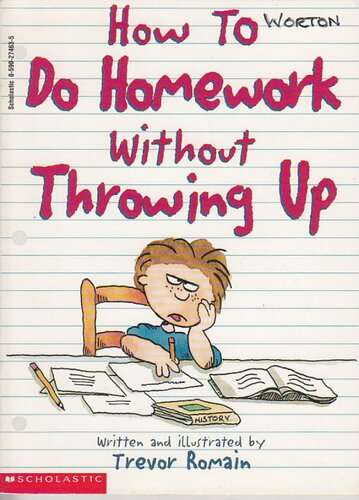 )
)
Such scheduling matches your energy with the difficulty of the task at hand. As a result, you face less challenging topics in the evening, by when you’ve dissipated loads of your physical and mental energy and when tendency to slack is highest.
On the contrary, if you pick easy stuff early in the day to get a false sense of progress – which many procrastinators do – you’re more likely to succumb to procrastination and give up later in the day when your energy and resolve would hate being tested.
For the same reason, to the extent possible, schedule your low-effort, non-academic activities such as socializing, making calls, and daily chores later in the day.
As far as academics are concerned, physical exercise boosts learning ability and long-term memory, and controls anxiety and depression. But the benefits of exercise go beyond: it also improves concentration, alertness, and motivation.
To quote John J. Ratey, associate clinical professor of psychiatry at Harvard Medical School and co-author of book Spark: The Revolutionary New Science of Exercise and the Brain (the book delves into how exercise affects brain):
… It [exercise] optimizes your mind-set to improve alertness, attention, and motivation.
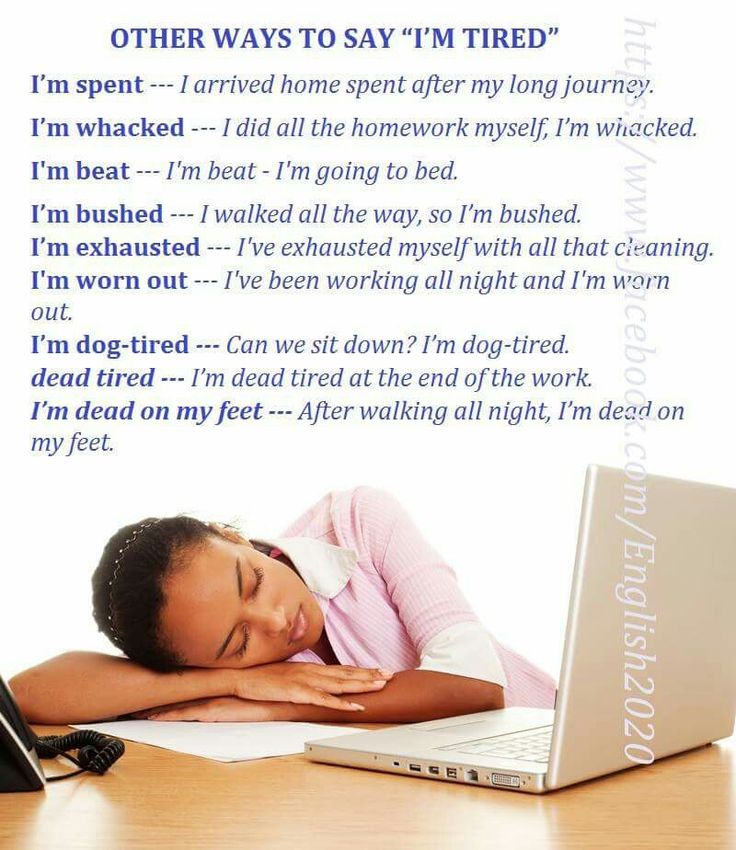
And the effects of exercise are visible almost immediately. In a review of several published scientific articles, this research brief by University of Texas, Austin says:
Physical activity can have both immediate and long-term benefits on academic performance. Almost immediately after engaging in physical activity, children are better able to concentrate on classroom tasks, which can enhance learning.
With these benefits, you can not only get more out of your study, but also last longer.
However, not all exercises are made equal as far as their effectiveness in improving your concentration and alertness in concerned. Most studies find 30-odd minutes of vigorous, sweat-inducing cardiovascular exercises to be the most effective.
(Please note that not all exercises are suitable for everyone. Before attempting a new exercise take into account factors such as flexibility, strength, and overall health to determine whether or not a particular exercise is appropriate for you. You may consult your professional healthcare provider in this regard.)
You may consult your professional healthcare provider in this regard.)
Yes, steal… if you can’t get it the legit way. It’s so important.
To quote John Medina, a leading authority on brain study and founding director of two brain research institutes, from his book Brain Rules:
People vary in how much sleep they need and when they prefer to get it, but the biological drive for an afternoon nap is universal…. If you embrace the need to nap rather than pushing through, as LBJ [Lyndon Baines Johnson, 36th president of the United States and a prolific napper] found, your brain will work better afterward.
In a study by NASA, the pilots who took a 26-minute nap reduced their lapses in awareness by 34 percent compared to those who didn’t nap. Moreover, those who napped showed an improvement of 16 percent in their reaction times. Importantly, their performance stayed consistent through the day and didn’t slack at the end of a flight or at night.
The most important aspect of nap, as observed in the case of NASA pilots, is that performance slacks much less than when you don’t nap, which means you can study at a high intensity even late in the evening if you have had a nap in the afternoon.
So, steal a nap in the afternoon, and you’ll be in a better position to handle your next session. The little nap can add hours to your schedule in the evening, quality as well as quantity wise. Here, are few quick tips for effective naps:
Although your brain constitutes just 2 percent of your body weight, it guzzles 20 percent of your daily energy intake. Studies have shown that non-pleasurable mentally exhausting tasks – academic learning will fall into this category for most – drain our energy fast.
Therefore, it’s important to eat in a way that sustains your energy level when performing mentally exhausting tasks.
Eat higher proportion of low Glycemic Index (GI) foods (examples: oats, porridge, low-sugar museli, granola bars, yogurt with seeds/ nuts, low-fat dairy, soups, salads, anything wholegrain, and most fruits), which release glucose slowly into bloodstream, thereby maintaining energy level for a longer period. High-GI foods (examples: pizza, white bread, burger, cake, chocolate, cookie, potato chips, sugary beverages, and ice cream) have an opposite effect: your energy levels rise fast and crash equally fast, resulting in fatigue and drowsiness.
Here is an illustrative representation of how your energy level changes with low-GI and high-GI foods.
Second, if you notice in the above graph, your energy levels go down in 2-3 hours irrespective of what GI food you eat, which implies that you need to replenish your glucose level every three hours, if not two, in order to maintain your energy.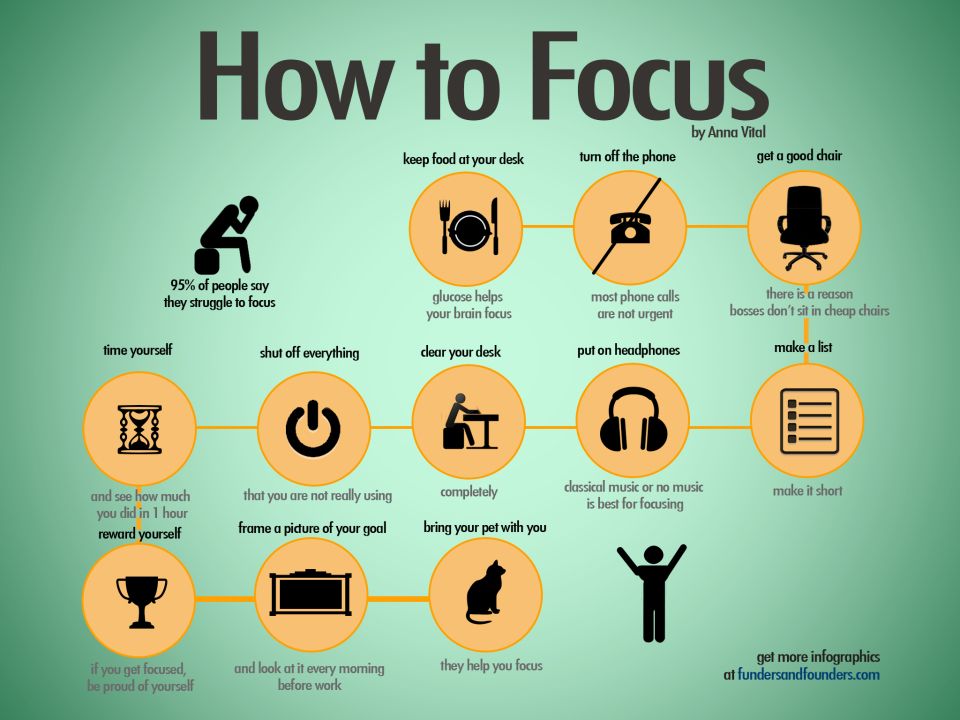 So, eat small portions every 2-3 hours.
So, eat small portions every 2-3 hours.
Because your brain is energy guzzler (2 percent vs. 20 percent), it’s important not to dissipate your energy by letting your mind wander into debilitating, irrelevant thoughts. Thoughts that linger on:
“Why did he behave with me so rudely?”
“What if I fail in the exam?”
And so on…
An effective way to squash such thoughts is to recognize them the moment they cross your mind, count up to three, and divert your mind elsewhere. (Yes, such thoughts creep in so automatically that we don’t realize that they’re gnawing you mentally, unless of course you practice breaking the train of thoughts. And counting, or anything else you may try, does precisely that.)
I know it’s not easy to control such wandering thoughts, but if you can…then you conserve some precious energy.
You should take breaks for two reasons. It not only relaxes you, but it also restores your waning concentration.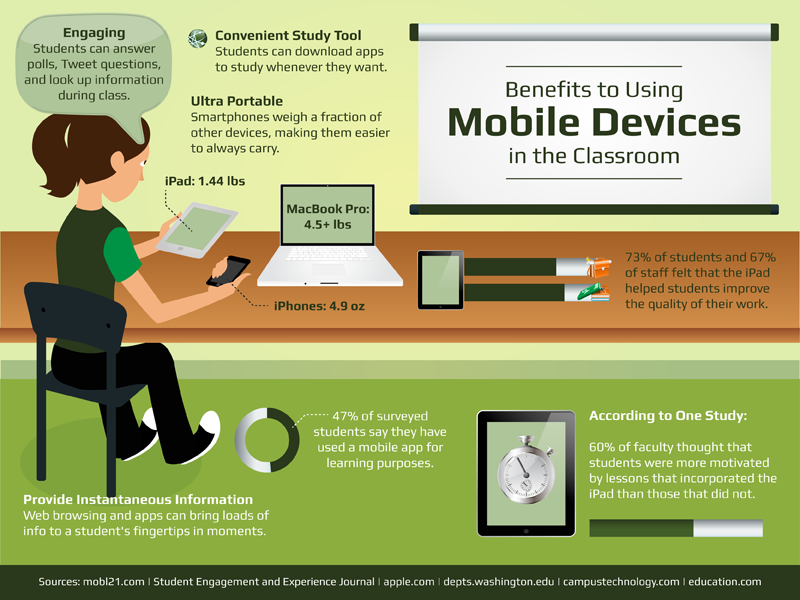
Your concentration starts dropping after 50 minutes or so, and if you keep powering your way through, you’ll be studying with lesser concentration, which is akin to wasting time. Therefore, take a 5-10 minute break every 50-odd minutes to restore your focus. (Note that this period may vary for individuals. So, test what works for you.) During the break, do anything but study: walk around, eat something, get some quick exercise, gaze outside, and so on. Idea is to take a break from what you have been doing.
Well, this may be a luxury which most likely you can’t afford, but if you can, then read on.
Research has shown that studying/ working in daylight makes you less drowsy, more alert in the afternoon, thereby increasing your productivity or adding more hours to your schedule.
In a study, Mirjam Muench and his team exposed two groups of people to six hours of either artificial light or daylight for two days and found that:
Compared to the afternoon, people who had DL (Daylight) were significantly more alert at the beginning of the evening, and subjects who were exposed to AL (Artificial light) were significantly sleepier at the end of the evening.

DL group was also found to perform better on cognitive functions – functions such as reasoning, memory, and attention you need when doing an intense mental work – on the second day.
So pull your table and chair to the corner of the room which receives sunlight. This, however, doesn’t mean studying directly under sunlight. If the room where you study receives sunlight, it’s good enough.
Here is the summary of what we’ve covered so far:

Now if you’re one of those who get time to study only in the evening because either you’re too busy attending other things in the day or because you work part-time, it may be even more challenging to not feel tired and drowsy in the evening. The only time you’ve is in the evening, and you’re certainly not at the peak of your energy after the day’s work.
If that’s you, you may take few additional steps (the ones covered till now will all be helpful in this case too) to squeeze in more productive hours:
At Naperville Central High School, Illinois, known for its physical exercise program, students report that exercise, besides other benefits, also helps them preempt dozing off in the class.
(When you exercise, neurotransmitters are released in the brain keeping you awake and alert. There is an evolutionary reason for this. In African savannahs, whenever prehistoric humans sensed danger – and there were many – from predators, they used to get alert and run for their lives. This evolution has hardwired alertness with physical activity in us. So, when you’re exercising, the brain gets the signal to be alert, awake.)
There is an evolutionary reason for this. In African savannahs, whenever prehistoric humans sensed danger – and there were many – from predators, they used to get alert and run for their lives. This evolution has hardwired alertness with physical activity in us. So, when you’re exercising, the brain gets the signal to be alert, awake.)
Whenever I’ve to work late in the evening, I exercise – mainly jumping jacks and kickboxing done indoors – for 10 minutes, usually between 6 and 7 PM, and it works well for me. It gets me rejuvenated, and can keep me going at a decent level till around 11 PM. If you noticed, the exercise is only for 10 minutes. It’s not strenuous. Otherwise, it’ll tire you and make you sleepy post-dinner.
You may take to any aerobic exercise (few examples: running, skipping, jumping jacks, and stair climbing) that ups your heart rate. But, as I mentioned earlier in the post, take into account factors such as flexibility, strength, and overall health to determine whether or not a particular exercise is appropriate for you.
As mentioned earlier in the post, you should ideally keep easier, interesting stuff for the night. Since you’re running low on energy and resolve, you’ll feel frustrated on encountering challenging stuff in the night. And if stuck, you know what you’re likely to do… hit the sack.
Study in bright light
Studying with only a table lamp lit makes the environment cozy, which can makes you feel sleepy. The same holds for a dimly lit room. So, brighten your study room.
Avoid comfortable setting
Prefer table & chair over sprawling on the bed or slumping on a couch to… you know it by now.
If you go to bed at 11 in the night and get up at 6 in the morning to leave your place at 8, try advancing your sleep and wakeup time by, say, an hour (that is, sleep at 10 and get up at 5) and put that extra morning hour to study.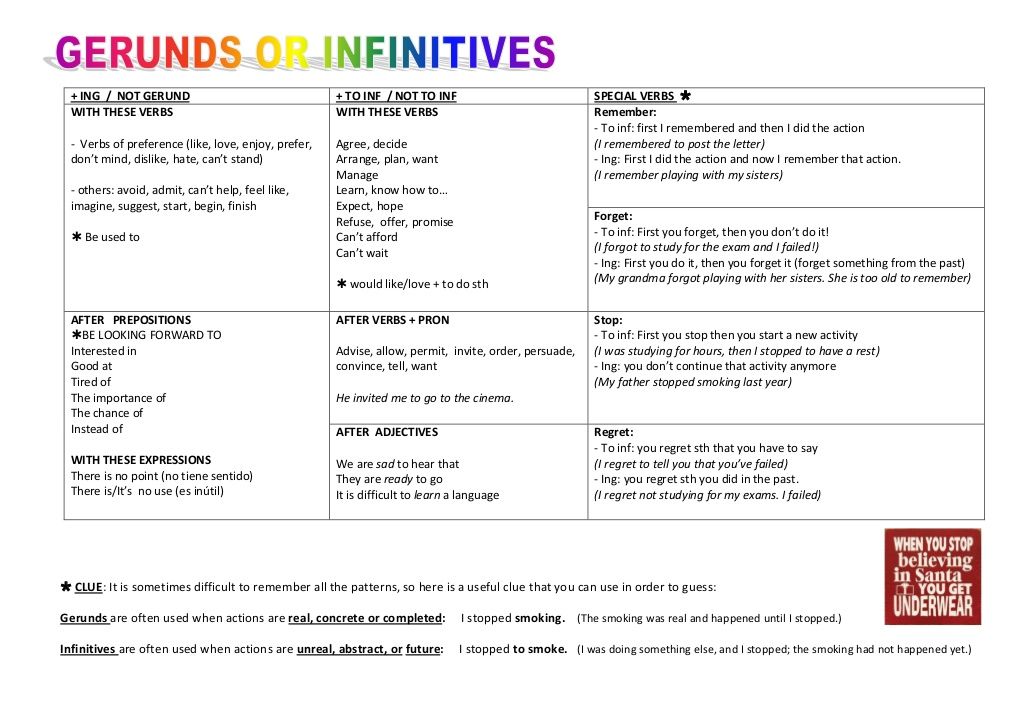 Because you’re well rested in the morning, that hour will be more productive than that in the night.
Because you’re well rested in the morning, that hour will be more productive than that in the night.
I encourage you to experiment with other methods not mentioned here (examples: a stroll in the open, music, splashing water on the face, and study loudly). You never know what else may work for you.
I haven’t mentioned caffeine as a way to fight drowsiness in the evening for the reason that it may interfere with your sleep. It may be fine when you’re pulling off those occasional all-nighters, but not when you’ve to take it regularly.
Here is the summary of how to study long hours in the night:

Whether we like it or not, the labor market is changing, and employers are increasing the requirements for employees. Innovations and trends are characteristic of almost all areas, and the knowledge that higher education provides is often not enough. To be in demand, you will have to engage in self-study at the age of 20, and at 40, and even in retirement. Otherwise, there will be someone who will do your job better than you.
Experts say that in the next five years, the Kazakh labor market is waiting for a boom in professional certifications. Instead of a diploma, the employer will ask the employee for an international certificate confirming his competence. Whether you decide to learn a foreign language, improve your skills, or master another specialty, you will need to memorize a lot of new information. We tell you how to do it more efficiently. Let's start with the basics of self-learning. nine0003
 Control your attention
Control your attention The more responsibilities, the more difficult it is to find an extra hour for training. Remember, every free minute counts. If your smartphone is not useful for studying, put it away. The same goes for social media and email. The more you spread your attention, the longer you will have to focus on work each time. At best, you will lose a few minutes, and at worst, you will not achieve results. To avoid this, choose a time for classes when you are most productive, and set a schedule for checking mail and instant messengers. For example, 10 minutes in the morning or in the afternoon. nine0003
Try to divide your tasks into two lists according to the method of American billionaire investor Warren Buffett. Write down 20-25 things you have planned for the next week and choose the 5 most important ones. The first list will consist of them, the rest will go to the second. Forget about it until you complete the priority tasks, and only then take on secondary tasks. The same principle works in teaching. Understand what you need to learn first and the rest will have to wait. nine0003
The same principle works in teaching. Understand what you need to learn first and the rest will have to wait. nine0003
Comfort does not stimulate us to learn more, stress, on the contrary, activates the parts of the brain responsible for the assimilation of new knowledge. This can be compared to being in an unfamiliar country, when in the first days everything is new and you need to communicate with the locals in order to get your bearings. Leaving your comfort zone is easier than you think.
If you are learning a foreign language, visit a place where native speakers gather and practice, watch foreign films and news. A portion of reasonable stress will also provide you with a difficult task, for which you will need to study something, a change in your personal schedule, or the company of people who understand something better than you. Lots of options, try it. nine0003
At school we were told that while we were writing, we automatically memorized some of the new information. Alas, this is not always the case. Without a thought process, we only translate paper. Much more information will remain in memory if you become a creative editor of your notes. To do this, you need to learn how to weed out the excess, reduce and write down your own conclusions.
Alas, this is not always the case. Without a thought process, we only translate paper. Much more information will remain in memory if you become a creative editor of your notes. To do this, you need to learn how to weed out the excess, reduce and write down your own conclusions.
If you add a little imagination to the process and make a connection between new knowledge and your experience, the information will be stored for a long time. Tony Buzan's mind maps and the scribing method can help with this. The first technique proposes to systematize all the key information in the form of a diagram, highlighting the main links and drawing logical connections between them. Scribing works in a similar way, in addition, it involves imaginative thinking and associations. You do not need to be a great artist to draw a little in a notebook, remembering the meaning of new concepts and terms through simple pictures combined into a diagram. nine0003
Remembering everything at once is unrealistic, because the brain processes new knowledge and connects it with the existing ones. A new associative chain appears in memory, and this takes time, at least one day. Therefore, information must be repeated at intervals. On the first day, repeat the material immediately after training, so after 15-20 minutes and after 6-8 hours, preferably before bedtime. Don't forget to review what you've learned within a week. To memorize foreign words, flashcards or mobile applications are useful. Another proven way to train your memory is to tell friends, relatives and acquaintances what you have learned. So you will understand what you forgot and what you remember. nine0003
A new associative chain appears in memory, and this takes time, at least one day. Therefore, information must be repeated at intervals. On the first day, repeat the material immediately after training, so after 15-20 minutes and after 6-8 hours, preferably before bedtime. Don't forget to review what you've learned within a week. To memorize foreign words, flashcards or mobile applications are useful. Another proven way to train your memory is to tell friends, relatives and acquaintances what you have learned. So you will understand what you forgot and what you remember. nine0003
When you don't get enough sleep or fall down from fatigue after work, the brain does not want to learn. If you want to keep up with everything and remember well, you need to restore strength in time. Knowledge is fixed in memory during the deep sleep phase, so it is important to fall asleep within 12 hours after learning.
Any physical exercise will also help in memorization.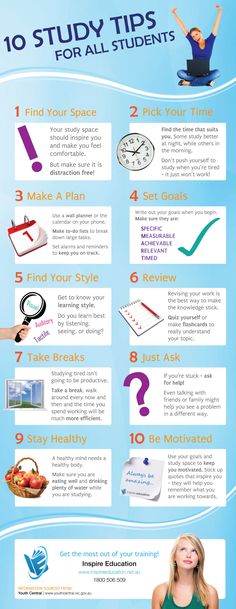 Increased blood circulation stimulates brain activity, and it also relieves lethargy. The hippocampus is responsible for long-term memory in the brain - a paired formation located in both hemispheres, where new nerve cells are formed. For their construction and strengthening of old cells, a special type of protein is responsible, the production of which is stimulated by training. nine0003
Increased blood circulation stimulates brain activity, and it also relieves lethargy. The hippocampus is responsible for long-term memory in the brain - a paired formation located in both hemispheres, where new nerve cells are formed. For their construction and strengthening of old cells, a special type of protein is responsible, the production of which is stimulated by training. nine0003
Use all available and interesting ways and resources in your learning. In addition to classic classes and online courses, search for videos and podcasts related to your topic. Surely Telegram and YouTube have thematic channels about your field. The easiest way is to learn languages. Combine the learning process with what interests you by learning new words through videos, series, songs, educational blogs and in the company of foreigners.
We spend most of our lives learning new things.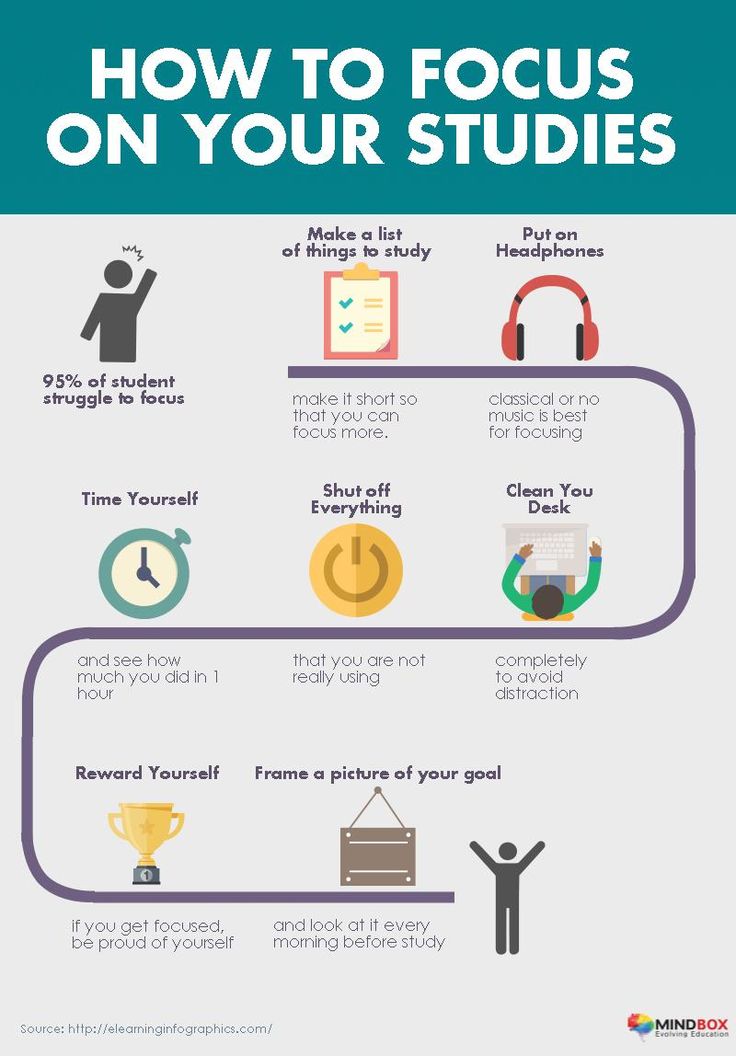 This applies not only to school and university, but also to adult life, when, it would seem, education is a thing of the past.
This applies not only to school and university, but also to adult life, when, it would seem, education is a thing of the past.
Pupils and students have to struggle with insurmountable fatigue that prevents them from achieving success. Faced with the desire to lie on the couch, to put off studying until better times, many reproach themselves for their lack of willpower and feel guilty.
To understand why fatigue occurs at the moment when mental activity is required, it is necessary to understand what mechanisms are responsible for this. nine0003
Fatigue is a lack of motivation. In other words, you do not see the meaning and benefit for yourself from studying. Learning becomes a daily torment and is accompanied by fatigue, which manifests itself in constant procrastination, distracted attention and low efficiency.
Few people manage to avoid such phenomena. During exams, fatigue is understandable, because preparing for them is stressful for the body. But sometimes you have to deal with a constant feeling of fatigue as soon as you need to study. nine0003
But sometimes you have to deal with a constant feeling of fatigue as soon as you need to study. nine0003
If you constantly feel tired when it's time to study, think about it - maybe you are not doing your job? Perhaps, in this way, your body signals that studying at the university is not your sincere desire, but a forced necessity or requirement of your parents.
Psychologists have long faced "burnout" in their studies. The student has a sense of the meaninglessness of learning. This can manifest itself in emotional and physical fatigue. In this case, it is advisable to make sure that there are no medical reasons that could reduce your performance. nine0003
We have put together a few tips for you to help make your learning process effective. They are applicable to any learning: at school, for online learning or studying at the university.
It is common for many of us to have a vague idea of the goal we want to see at the end of the training.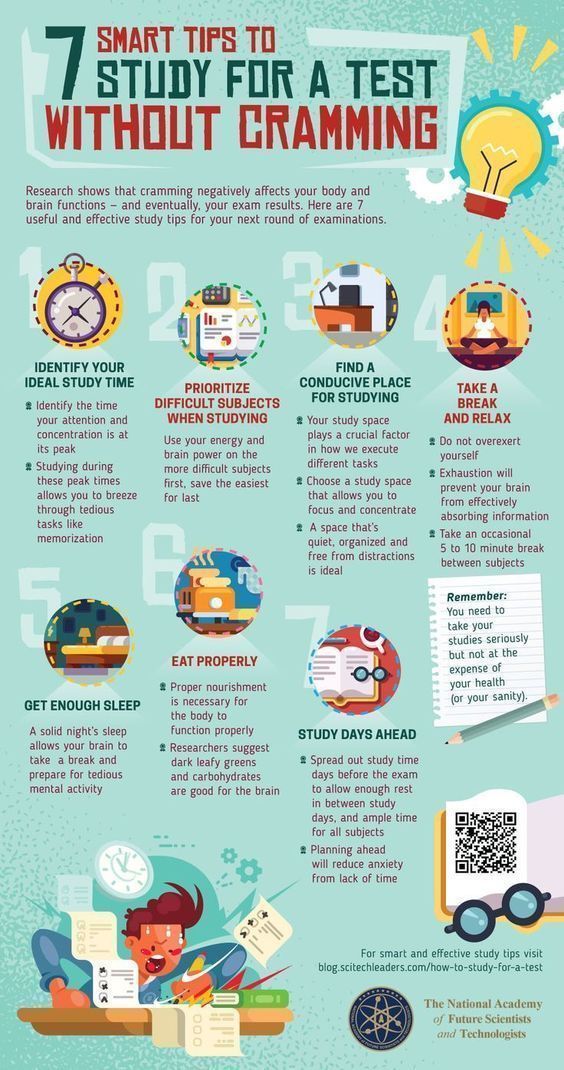 This prevents us from assessing our effectiveness - how quickly we are moving towards our goal. If we do not see the result, then the motivation will decrease, which means that the body will “sabotage” all our efforts. This is how fatigue sets in. nine0003
This prevents us from assessing our effectiveness - how quickly we are moving towards our goal. If we do not see the result, then the motivation will decrease, which means that the body will “sabotage” all our efforts. This is how fatigue sets in. nine0003
To clearly see the desired goal, write down the end result and the step-by-step actions to be taken. Refer to your list and adjust it if necessary. Each time you cross off another item from your plan, you will see how the goal is approaching.
Make a study plan for yourself and identify the most difficult topics. Starting with those that require more effort, you will see the result in the first stages, and this will give you the strength to study the planned volume. Usually, performance is higher in the morning, so it is easier to complete the most difficult tasks in the morning. nine0003
Try to study at the same time in order to develop a habit. So it will be easier for you to start learning and not be distracted by chatting with friends or reading social networks.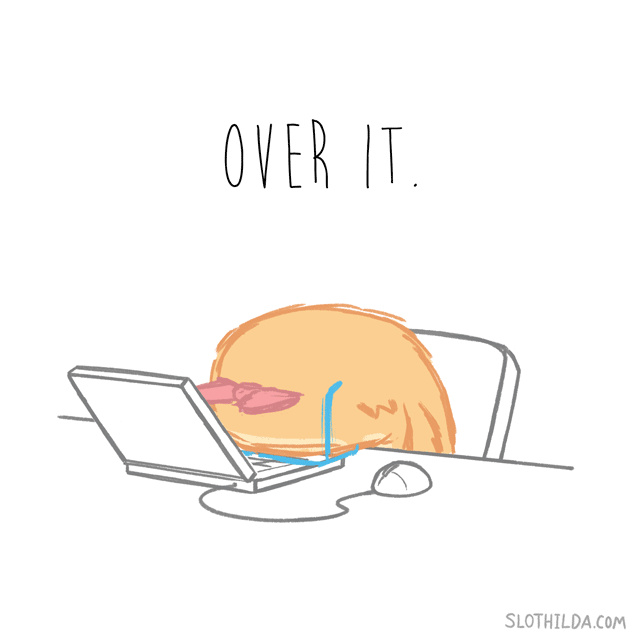
If you find like-minded people, this can be a good incentive for all participants in the study. The slight competitive effect that comes with co-education won't let you relax.
In this situation, it is important to choose friends with whom you have the same views on studies. Common interests, the opportunity to ask questions and lead a discussion will make learning interesting and exciting. You can turn study into a game, which will immediately eliminate boredom and fatigue. nine0003
This tip is especially important for distance learning. When you are “your own boss”, both excessive attention to study, which will lead to “burnout”, and procrastination are likely.
Procrastination is a phenomenon that is hard to deal with. Surely, you remember the cases when, instead of studying, time was spent browsing social networks, doing small and unimportant household chores. Procrastination is considered the disease of our age.
nine0003
Fatigue and boredom, like fire, are “afraid” of changing activities. Therefore, do not forget about fitness and regular daily walks. At first glance, it may seem that the more attention is paid to study, the more information can be remembered.
This is an erroneous opinion, because the brain gets tired and cannot absorb new knowledge. Your memory becomes like a leaky sieve in which nothing lingers. Changing activities is useful because physical activity stimulates the brain and makes learning productive. nine0003
A natural response to fatigue is sleepiness. However, do not fight it and deny yourself a dream. Of course, you need to sleep at least 7-8 hours a day. You will be surprised, but a child's need for an afternoon nap will have a positive impact on the volume and quality of the memorized material.
During sleep, knowledge is structured and gets into long-term memory. Even studying at the university allows you to set aside 20-30 minutes for an afternoon nap. nine0003
nine0003
But don't fall into "winter hibernation", devoting 1.5-2 hours a day to sleep. Instead of cheerfulness and clarity of mind, you run the risk of getting even more tired and drowsy.
Often, fatigue is the result of an incorrectly compiled menu. Fast carbs found in buns, sodas and snacks provide an instant energy boost. But… energy disappears just as quickly, so there is a decline in physical and psychological strength. A new portion of recharging is required, which will also not last long. And then another circle, and another ...
So that food does not play a trick on you, choose protein foods in combination with slow carbohydrates.
Meat, fish, eggs - a necessary source of protein for brain function. And slow carbohydrates, which are found in vegetables, cereals and whole grain bread, will provide you with energy.
Try to have breakfast, lunch and dinner at the same time. The absence of hunger or, conversely, overeating, will help you focus on your studies immediately after eating.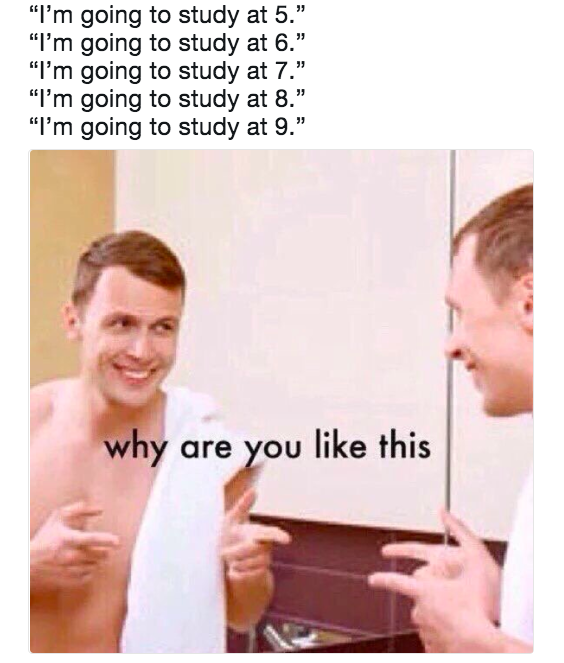 nine0003
nine0003
Along with setting a goal, choose a small gift for yourself. A favorite game, a meeting with friends in a cafe, and just a big cone of chocolate ice cream - anything can be a reward for diligent study.
The anticipation of pleasant emotions will help you not to be distracted and persistently move towards the goal.
Sometimes we mistakenly believe that the more we experience and imagine failing an exam - sudden memory loss or the action of unexplained evil spirits, the more likely we are to avoid a negative result. nine0003
This is where the well-known psychologists' rule of "self-fulfilling prophecy" comes into play. Imagine only a positive outcome of learning, think about what benefits new knowledge will bring to you, well, and do not forget to study!
And now the last piece of advice - experiment! All the tips we offer work individually for each person. It may not work for you at all, but you can find another "magic tool" that will help you become a better student at the university.